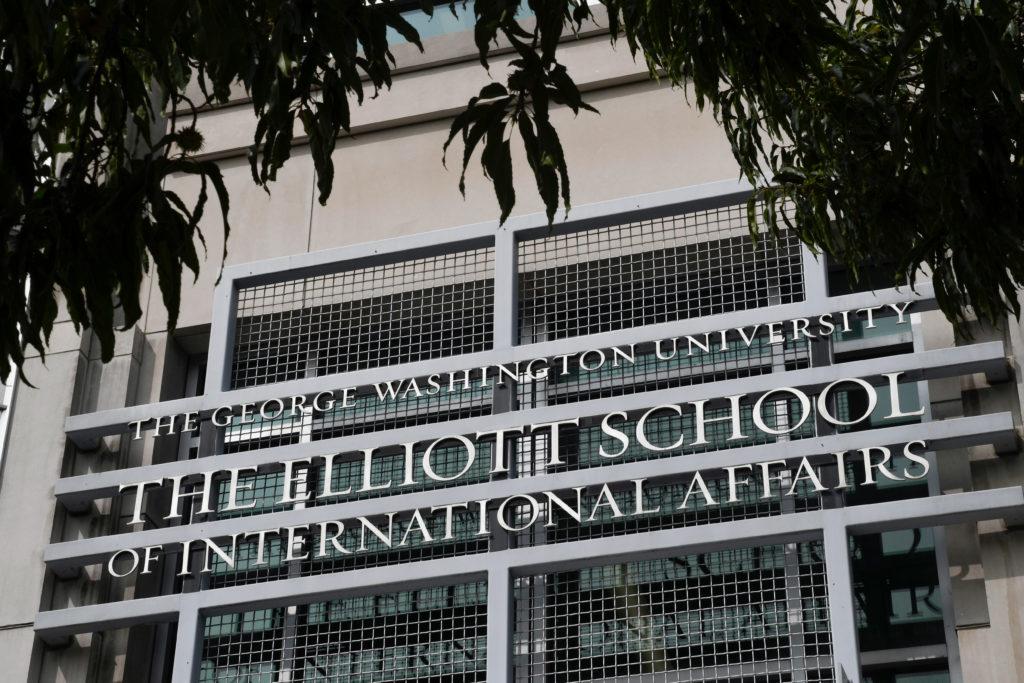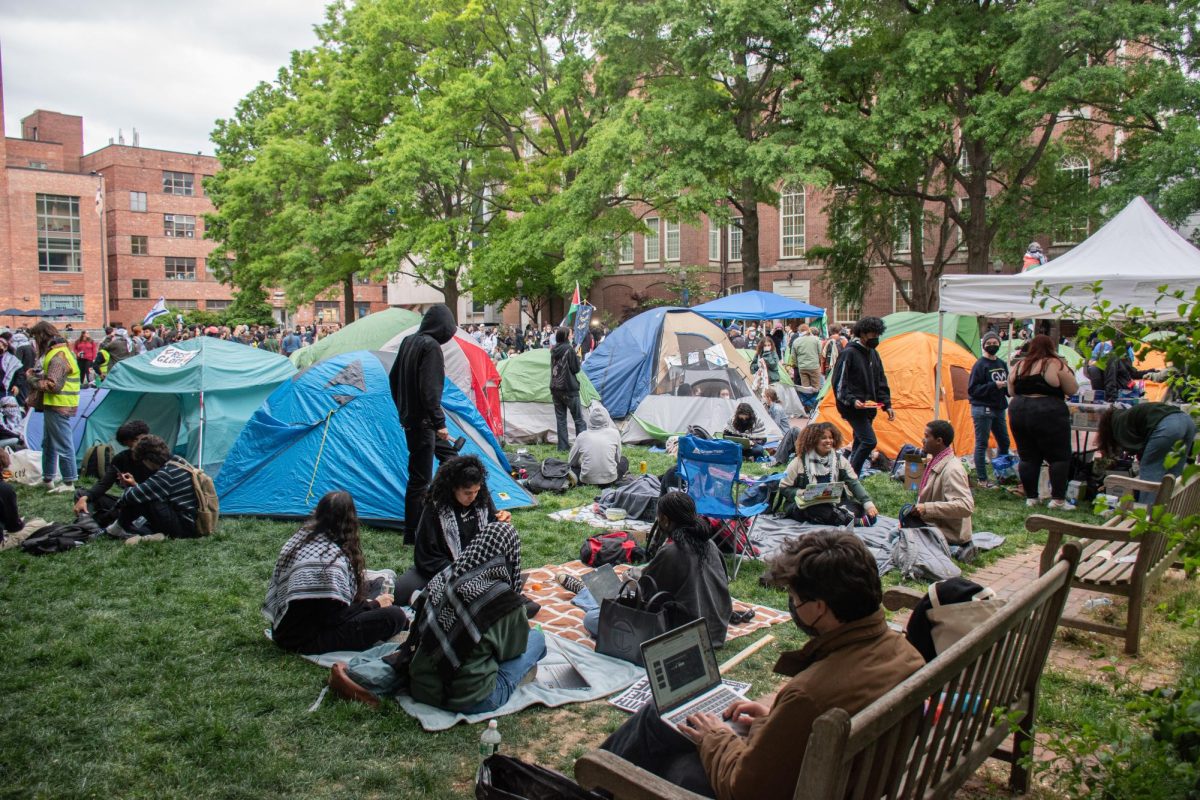Elliott School of International Affairs officials said they spent the past year increasing student leadership in its Council on Diversity and Inclusion and added resources for inclusive teaching to their website as part of an annual plan to promote diversity in the school.
Officials said they hired a diversity program manager, integrated diversity and inclusion into the hiring process for faculty and staff and held various events in partnership with cultural organizations at GW. They said while some events needed to be canceled due to the pandemic, Elliott School staff completed focus groups that have helped set diversity and inclusion goals for this academic year.
Jonathan Walker, the assistant dean for student services, diversity and inclusion for the Elliott School, said officials hired Kylie Stamm, a specialist in diversity in higher education, as a diversity program manager last November to support and implement the goals of the plan. He said she has provided “significant support” in executing the initiatives from the action plan.
Walker said Elliott School officials also hosted various “cultural heritage and identity-based” programs, including a partnership with the U.S. State Department to host a reception for the Historically Black Colleges and Universities Foreign Policy Conference for Black History Month. He said officials also hosted a keynote speaker, a professor of psychology and education from Columbia University, who spoke about microaggressions and racism related to the COVID-19 pandemic for Asian and Pacific Islander Heritage Month in May.
Walker said East Asia National Resource Center staff partnered with Spelman and Morehouse colleges to host programs and seminars this year on U.S.-China trade relations and professional development. The center also worked with K-12 schools to host teacher training seminars and field trips for students, he said.
“Our East Asia National Resource Center is committed to supporting and collaborating with new and diverse voices in East Asian studies through its outreach programming with Minority Serving Institution partners at Spelman College and Morehouse College,” he said in an email.
Walker said officials restructured the Council on Diversity and Inclusion to include four undergraduate student seats representing freshmen, sophomores, juniors and seniors and graduate student seats for first-year and second-year representatives. He said a team of faculty from the council created an inclusive teaching statement over the summer with resources like readings from a diverse group of authors for Elliott School faculty to use in their classes.
The teaching statement includes four “components” to make teaching more inclusive for students: “how we teach,” “what we teach,” “where we draw our pedagogical materials” and “how we support constructive and supportive student engagement.”
The statement features resources and examples for professors to make their classes more inclusive for students through inclusive syllabus language, diverse class readings and support resources for students to understand race and report bias-related acts.
“Our faculty and students also worked on developing best practices and recommendations to integrate implicit bias discussions into the core courses of Elliott School students,” Walker said.
He said officials also completed focus groups with staff members, which has “informed” upcoming goals for the 2020-2021 academic year.
Stamm, the diversity program manager, said over the course of the year, Elliott School officials created an email newsletter to “expand” communications within the Elliott School and broader GW community and worked to support the creation of the Young Black Professionals in International Affairs student organization. Students in the Elliott School launched YBPIA this summer, which is designed to create a professional community for Black students in the Elliott School.
Jennifer Brinkerhoff, a professor of international affairs and former co-chair of the council, said she is “proud” of the council for creating the inclusive teaching statement, which she said faculty, staff and students worked to create in response to the Black Lives Matter movement.
“One of the things that I’m most proud of is in this COVID-19 environment coupled with the Black Lives Matter awakening is that we recognized a need to do something significant, visible and fast before we started the fall semester,” Brinnkerhoff said.
Rollie Lal, an associate professor of international affairs and co-chair of the council, said the council, which includes seven students, has placed students in working groups for officials to “seriously” take their input into consideration. She said to increase student engagement with faculty and students about diversity issues, Elliott School officials assigned all freshmen to read the book “Tell Me Who You Are: Sharing Our Stories of Race, Culture, & Identity.”
She said faculty plan to discuss the book, which is about the way people across the U.S. experience racism, early in the semester.
Lal said she spent the summer adding resources to the webpage for the inclusive teaching statement like the Gender Equality Initiative in International Affairs’ gender analysis list, which she said can help faculty understand how they can implement gender equality in their course syllabi.
“I think it was really a major step forward in really stating that this is important to us as a school, and it is important to us as individuals and we’re all going to work on moving forward on this,” she said.







